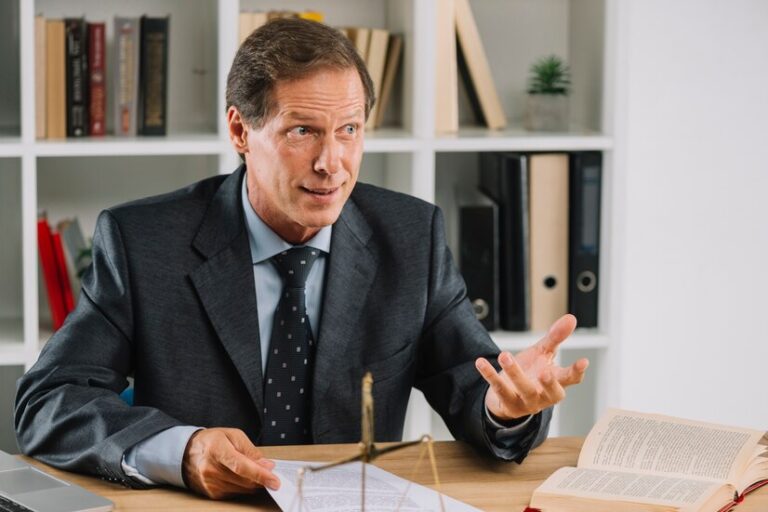The Unsung Heroes: Exploring the Complex World of Criminal Defense Attorneys
When someone is accused of a crime, they often face a scary and confusing situation. This is where criminal defense attorneys step in. These legal professionals play a crucial role in our justice system, making sure that everyone gets a fair chance to defend themselves.
Understanding the Role of a Defense Attorney
At its core, a defense attorney’s primary responsibility is to provide legal representation to individuals and organizations charged with criminal offenses. This representation encompasses a wide array of duties, including:
Legal Advice and Counsel: Defense attorneys explain the law to their clients in simple terms. They help clients understand the charges against them and what might happen next.
Investigation and Case Building: They look into the details of the case, talk to witnesses, and gather evidence that might help their client.
Negotiation and Plea Bargaining: Sometimes, attorneys try to make deals with prosecutors to get better outcomes for their clients without going to trial.
Courtroom Representation: If the case goes to trial, defense attorneys argue for their clients in court. They question witnesses, present evidence, and try to convince the judge or jury of their client’s innocence or reduced culpability.
Protecting Client’s Rights: Throughout the process, defense attorneys make sure their clients’ legal rights are respected. This includes making sure police and prosecutors follow proper procedures.
The Importance of Legal Representation
Having a top criminal defense attorney in Sacramento is crucial for anyone accused of a crime. Here’s why:
Leveling the Playing Field: The government has many resources to prosecute cases. A defense attorney helps balance things out, giving the accused a fair chance to defend themselves.
Protecting Against Wrongful Convictions: Sometimes, innocent people are accused of crimes. Defense attorneys work hard to prevent wrongful convictions by challenging evidence and finding holes in the prosecution’s case.
Ensuring Fair Treatment: Defense attorneys make sure their clients are treated fairly by the justice system. They fight against unfair treatment or harsh punishments.
Mitigating Consequences: Even if a client is found guilty, a good defense attorney can often help reduce the punishment or find alternative solutions like rehabilitation programs.
Navigating the Different Types of Defense Attorneys
Not all defense attorneys are created equal. There are various types, each with their own specializations and approaches:
Public Defenders: These are lawyers provided by the government for people who can’t afford to hire their own attorney. They often handle many cases at once but are dedicated to providing quality defense.
Private Attorneys: These lawyers are hired directly by clients. They often have more time and resources to devote to each case, but it can be expensive.
Pro Bono Attorneys: Some private attorneys take on cases for free or at reduced rates to help people in need. This is called pro bono work.
Choosing the Right Defense Attorney
Selecting the right defense attorney is a crucial decision that can significantly impact the outcome of a case. Here are some factors to consider:
Experience: Look for an attorney who has handled cases similar to yours. If you’re facing serious charges, seek out a criminal defense attorney with a proven track record.
Reputation: Check reviews and ask around about the attorney’s reputation. A good reputation in the legal community can be valuable.
Communication: Choose an attorney who explains things clearly and keeps you informed about your case.
Comfort Level: You should feel comfortable talking to your attorney. Trust your instincts about whether you can work well together.
The Attorney-Client Relationship: Built on Trust and Confidentiality
The relationship between a defense attorney and their client is unique. It’s built on a foundation of trust, confidentiality, and open communication.
Confidentiality: Attorneys must keep their client’s information private. This allows clients to be honest without fear of their words being used against them.
Trust: Clients need to trust their attorneys to make the best decisions for their case. Attorneys, in turn, need to trust that their clients are being truthful with them.
Communication: Good attorneys keep their clients informed about what’s happening in their case and explain things in easy-to-understand terms.
The Stages of a Criminal Case: A Defense Attorney’s Roadmap
A criminal case typically progresses through several stages, and a defense attorney guides their client through each step:
Arrest and Booking: This is when someone is taken into police custody and officially recorded as a suspect in a crime.
Arraignment: The accused person appears in court to hear the charges against them and enter a plea (guilty, not guilty, or no contest).
Discovery: Both sides share information about the evidence they have.
Pre-Trial: Attorneys can ask the court to make certain decisions before trial, like throwing out certain evidence.
Sentencing: If the accused is found guilty, the judge decides on the punishment.
Appeal: If there were legal mistakes during the trial, the case might be reviewed by a higher court.
Ethical Considerations: The Defense Attorney’s Moral Compass
Defense attorneys are bound by a strict code of ethics that governs their conduct. These ethical obligations include:
Duty of Confidentiality: Attorneys must keep their client’s information private, with very few exceptions.
Duty of Loyalty: Attorneys must put their client’s interests first, even if they personally disagree with the client’s actions.
Duty of Candor: While attorneys can’t lie to the court, they also can’t reveal information that would harm their client’s case.
Avoiding Conflicts of Interest: Attorneys can’t represent clients if doing so would conflict with their obligations to other clients or their own interests.
The Challenges and Rewards of Defending the Accused
Being a criminal defense attorney is not without its challenges. These include:
Dealing with Difficult Clients: Some clients may be uncooperative or dishonest, making the attorney’s job harder.
Emotional Toll: Dealing with serious crimes and high-stakes situations can be emotionally draining.
Public Perception: Defense attorneys sometimes face criticism from people who don’t understand their important role in the justice system.
However, the rewards of this profession are immense:
Protecting the Innocent: There’s no greater satisfaction than helping an innocent person avoid wrongful punishment.
Fighting for the Underdog: Defense attorneys often help people who are facing the full power of the government with limited resources of their own.
Making a Difference: Good defense attorneys can change lives by securing fair outcomes for their clients and pushing for improvements in the justice system.
The Evolving Landscape of Criminal Defense
The field of criminal defense is constantly evolving, influenced by changes in law, technology, and societal attitudes. Some key trends include:
Increased Use of Technology: From DNA evidence to digital forensics, technology is changing how cases are investigated and defended.
Focus on Rehabilitation: There’s growing recognition that many accused individuals need help rather than punishment, leading to more alternative sentencing options.
Specialized Defense: Some attorneys focus on specific types of cases, like drug offenses or white-collar crimes, becoming experts in those areas.
Conclusion
Criminal defense attorneys play a vital role in our justice system. They ensure that everyone, regardless of the accusations against them, gets a fair chance to defend themselves. These legal professionals navigate complex laws, fight for their clients’ rights, and work tirelessly to achieve the best possible outcomes.
As our society continues to grapple with issues of crime, punishment, and rehabilitation, the role of defense attorneys remains as crucial as ever. They are the unsung heroes of our legal system, standing up for the rights of the accused and ensuring that justice is served for.







